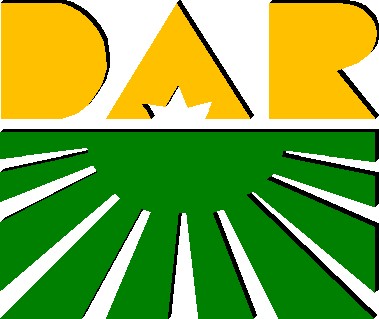
Tampilisan Mayor Angeles Carloto II also praised DAR for the project.
DAR officials said the 2.5-kilometer farm-to-market cost about P12.1 million under the Agrarian Reform Community Project II (ARCP2).
Provincial agrarian reform officer Moh. Dassan Adju said DAR would continue its development efforts for the welfare of the agrarian reform beneficiaries. “We never stopped to push the development of our agrarian reform communities,” he said.
He said DAR accelerates the delivery of support services to agrarian reform beneficiaries and other farmers through the implementation of foreign- assisted projects, one of which is the ARCP2.
Under the DAR’s Agrarian Reform Communities Development Framework, these FAPs provide a package of interventions designed to ensure the productivity of awarded lands, increase household incomes and enhance the socio-economic status of Agrarian Reform Community residents. It covers gender and development as well as participation of the indigenous people.
The ARCP2 is funded by the Asian Development Bank and its long-term development goal is to reduce poverty in about 152 ARC clusters located in southern Philippines. Specifically, it aims to contribute to sustained improvements in the incomes of Agrarian Reform Beneficiaries and non-ARBs and in the quality of life in the ARC.
The ARCP2 is designed to provide development investment in the different components namely – the community-driven development as a lead component to mobilize the community, strengthen the organizational processes, improve governance and build stronger platform for sustainability. Agriculture and Enterprise development to increase productivity and profitability of income generating activities, develop and improve markets and market linkages, and promote agribusiness.
On the other hand, the rural infrastructure component is an enabler to improved production, cropping intensity, cost effectiveness and access to services, and enhanced ARC connectivity to promote agribusiness.
Adju said they also launched the DAR-CDA (Cooperative Development Authority) Partnership Program on Strengthening and Capacity Building of Agrarian Reform Beneficiaries Cooperatives in Dipolog City.
Under this program, the DAR had provided the necessary financial and technical assistance to the ARB cooperatives to enable them to effectively address the purposes and objectives of the cooperatives. The program also intended to provide 14 mandatory trainings that each cooperative must undergo as part of its continuing capacity building and cooperative professionalism process.
To date, nine ARBOs consisting of nine cooperatives and two farmers or peoples organizations are being assisted in the ARCs and Agrarian Reform Areas (ARAs) in Zamboanga del Norte. From the nine assisted cooperatives in the ARCs and ARAs, nine cooperatives were re-registered with the CDA.
To ensure that the prescribed training curricula for cooperatives, DAR Zamboanga del Norte had prioritized the nine cooperatives managing locally and foreign assisted projects to undergo the four mandatory trainings and as of this writing, the said trainings had already been undertaken. The training had focused on the development of competencies of the cooperative based on the provisions of the new cooperative code.
It can be noted that although the cooperatives are managing their project with installed policies, system and procedures, the provision of these training programs will ensure that all officers of the cooperative have fundamental knowledge and understanding of cooperative programs, practices and legal underpinnings for an efficient and sustainable management of their business services as well as projects provided by the DAR.
The activity aims to sustain the cooperative’s operations and services to their members, and to enable them to engage in more sustainable, competitive and profitable business operations. Moreover, it also wants to gain insights on how to address the issues and concerns affecting the cooperatives in relation to the requirements of the CDA.
Adju stressed that it is a must to continually educate the ARBs in order to empower them and to help them alleviate their lives from poverty which is the primary concern of the program.

